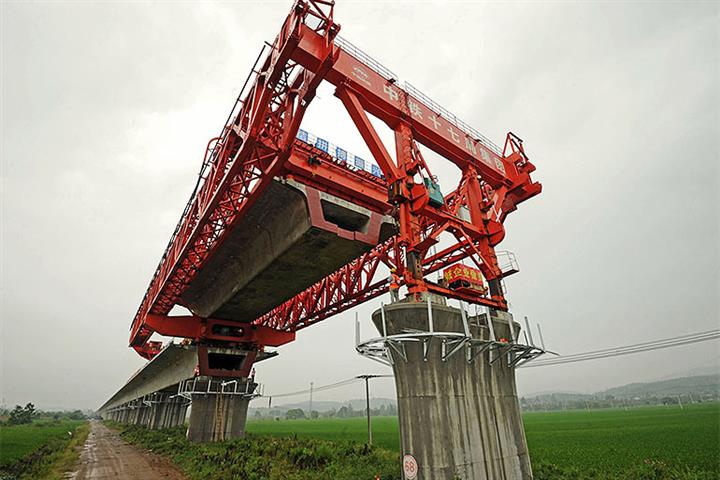 China Needs More Infrastructure Investment to Reach 5.5% GDP Growth Goal, Academic Says
China Needs More Infrastructure Investment to Reach 5.5% GDP Growth Goal, Academic Says(Yicai Global) March 7 -- Chinese Premier Li Keqiang set the country's economic growth target for this year at around 5.5 percent during the ongoing annual meetings of the country’s top political and legislative bodies. In order to achieve this goal, more investment is needed in infrastructure, according to a scholar at the Chinese Academy of Social Sciences.
China’s infrastructure investment will need to grow by 6 percent and financing for infrastructure construction should reach CNY20 trillion (USD3.2 trillion) this year in order to achieve the gross domestic product growth target, according to a paper recently published by Yu Yongding and his economic policy research team.
Only a small proportion of the central government’s general public budget is used for infrastructure construction, according to the report. It is possible to hike such spending to support infrastructure construction in various areas, said Yu, who used to be a member of the central bank’s monetary policy committee.
“To achieve the economic growth target, we must keep finding a balance between economic growth and financial stability. This year we need to pay more attention to promoting growth. Whether investment in infrastructure can increase significantly is key to stabilizing growth in 2022,” Yu said.
Less income from the sale of land use rights due to a cooling property market poses a financial challenge to local governments, but this can be dealt with by increasing financial transfer payment from the central government to local governments and relaxing restrictions on local governments’ issuance of special bonds, Yu said.
“The main purpose of macroeconomic policies this year is to support growth, ensure employment and stabilize prices,” he said. Stabilizing real estate prices is not a core target of current macroeconomic policies, he added.
“But should there be a sharp drop in investment in the property sector, capital injections into infrastructure need to climb accordingly to offset the adverse impact of a slowing real estate market on the economy,” Yu added.
Editors: Tang Shihua, Kim Taylor